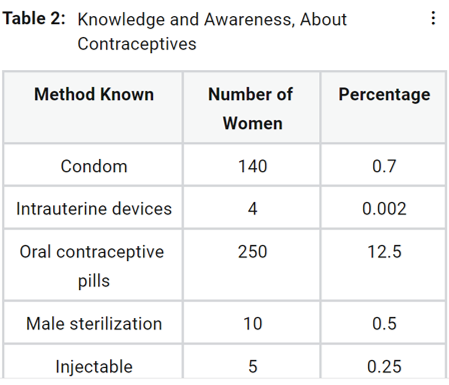Knowledge, Attitude, and Practice of Contraception in Rural Area of Vidarbha
Abstract
Knowledge of use of contraceptives is necessary to prevent unwanted pregnancies and for optimal spacing, especially when it comes to rural populace. It is essential to create awareness and educate them regarding the proper usage of contraceptives and facilitate their usage. Family planning has two main objectives; firstly, to have only the desired number of children and secondly, proper spacing of pregnancies. India has undergone fertility transition and important feature of this transition is the fact that contraceptive use has spread to even uneducated women. Family planning is widely discussed topic on the national stage, with lot of government machinery to help implement it, yet there exist lot of disparity in its execution. In our study, the knowledge of contraception was upto 60%, while its acceptance was seen in 50% of the population, knowledge of contraceptives was very much likened to the level of education the populace has received as well as due to efforts of mother and child health and family planning services in the rural area, lack of use contraceptives was mainly attributed to fear of side-effects, which were mainly due to hearsay. Our study highlights the fact that even though our study was based in rural area, it involved women belonging to all stratas of society, and women had more predilection towards temporary methods of contraception rather than going for permanent contraception. It is concluded from the present study that 60% women had knowledge and were aware of the contraceptives but lacking information about their availability at health care centers.
Full text article
References
K Park. Park’s textbook of preventive and social medicine. page 832, 2009. Jabalpur: M/S Banarsidas Bhanot. 20th Edition. OCLC Number: 794303015.
Abida Sajid and Samia Malik. Knowledge, Attitude and Practice of Contraception Among Multiparous Women at Lady Aitchison Hospital, Lahore. Annals of King Edward Medical University, 16(4):266, 2010.
Shweta Dabral and S. L. Malik. Demographic Study of Gujjars of Delhi: IV. KAP of Family Planning. Journal of Human Ecology, 16(4):231–237, 2004.
Divya Pandey, Deepali Garg, and Sudha Salhan. Study of Knowledge and Contraception Practices in Low Socio-Economic Women of Delhi. International Journal of Reproduction, Contraception, Obstetrics and Gynecology, 3(4), 2014.
National Family Health Survey – 4. State Fact Sheet Maharashtra. International Institute for Population Sciences, pages 1–6, 2015. NH_Fact Sheet.pdf.
B. M. Ramesh, S. C. Gulati, and Robert Retherford. Contraceptive use in India, 1992-93. ResearchGate, 1996.
R O Aldabbagh and H K Al-Qazaz. Knowledge and Practice of Contraception Use Among Females of Child-Bearing Age in Mosul, Iraq. International Journal of Women’s Health, 12:107–113, 2020.
Taranga Reang and T. Gambhir Singh. Community Perceptions on Family Planning Among Eligible Couples in an Urban Slum of Hatta Area of Imphal East District, Manipur. Journal of Evolution of Medical and Dental Sciences, 3(14):3770– 3780, 2014.
Authors

This work is licensed under a Creative Commons Attribution-NonCommercial-NoDerivatives 4.0 International License.





